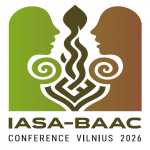2.3. Providing Access
Preservation and access should always be linked together. Collections that will never be accessed – for what ever reason – even after a legal or ethical delay should not be kept in public funded institutions. However, before disposing of any collection materials, archives should be aware that circumstances change and that apparently intractable access issues can be resolved, see 2.2.1 Archival Processing and Preservation).
The ethics of giving access to sound and audiovisual documents have legal and technical aspects.
The main technical aspects are that access should not do any harm to the physical integrity of the document and, on the other hand, the user should be given the possibility to access all the content relevant for the document.
As through internet an unlimited and uncontrolled access can easily be given to sound and audiovisual documents, archivists have to carefully balance between the right of access and the right of the persons and institutions linked to a document and, to regulate access in a way that the confidence in sound and audiovisual archives are not damaged.
In addition, there are some important ethical issues related to dissemination or repatriation that are particularly important for sound and audiovisual archives, and especially for those preserving field, documentary and other original recordings. Some of these issues are especially evident when archives themselves become users of their collections in publications, in websites, etc. These issues include the right of a community to access its own cultural heritage, possible community and customary rights over dissemination, and the importance of observing the agreements made at the time the original performers were recorded.
There have been cases in which depositors have made access to their collections so restrictive that members of the performers’ community cannot access them. Such restrictions tend to create resentment toward researchers and archives.
When repatriation occurs as a transaction between archives, it should be accompanied by an agreement between the donor archive and the recipient archive to honour performers’ and donors’ original agreements regarding access and treatment of sacred or other sensitive materials. This agreement should be legally valid so that the donor archive will be indemnified against improper use of the collection once it is transferred to another archive.
It is important to recognize that the interests of nations and those of performers may differ. Copyright legislation generally refers to individual ownership and control over original content, but archives should recognize the possibility of community ownership and customary rights in addition to those recognized by national and international legislation.
Access to specific collections should follow the agreements established at the time of collection and/or acquisition of the recording from the performer. Archival policies should involve an actual agreement between the archive and each user defining the specific ways the user can treat the materials; these agreements should follow from the original agreements with the performers. Users are expected to behave ethically in their use of the materials.


